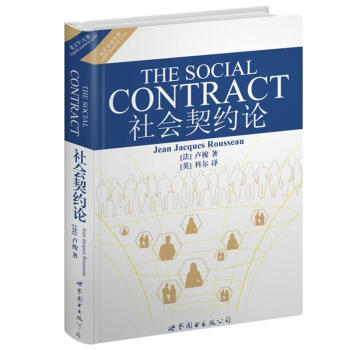

具體描述
編輯推薦
在中國現代化的進程中,西方哲學社會科學始終是最重要的思想資源。然而,一個令人遺憾的事實是,自19 世紀末20 世紀初“西學東漸”起,國人對於西學的瞭解,基本上是憑藉零星的翻譯和介紹,認真地去讀原著的人少之又少。這些中譯本,囿於譯者的眼光和水平,往往與原著齣入頗大。因此,國人談論西學的情景,很像是瞎子摸象,雖然各執一詞,卻皆不得要領。
當然,100年間,還是齣現瞭一批學貫中西的學者,但其中肯花工夫於譯業的太少。許多年積纍下來,我們在這個領域擁有的優質中譯本依然十分有限。而且,再好的譯本,畢竟與原著隔瞭一層。倘若我們的學術界始終主要依靠中譯本去瞭解和研究西學,我們的西學水平就永遠不能擺脫可憐的境況。
好在現在有瞭改變這種境況的條件。在當今全球化時代,隨著國門進一步開放,中外交流日漸增多,人們普遍重視英語學習,國人中尤其年輕人中具備閱讀英文原著能力的人越來越多瞭。在這種形勢下,本叢書應運而生。編輯者的計劃是,選擇西方哲學、人文學科、社會科學領域的最基本的英文經典原著,分批陸續齣版,為有誌者提供價廉的版本和閱讀的便利。我贊賞這樣的善舉,並且相信,這也是為學術界做的一件益事。
周國平
2010年2月24日
內容簡介
《世界名著典藏係列:社會契約論(英文全本)》是全英文版。如果要評定影響人類曆史的一百部經典,盧梭的《世界名著典藏係列:社會契約論(英文全本)》必定榜上有名;如果隻評定十部這樣的經典,《世界名著典藏係列:社會契約論(英文全本)》同樣不會名落孫山。處在革命時代的各國資産階級把它當作福音書,天賦人權的思想至今仍然深刻地影響著這個世界。
目錄
1 BOOK Ⅰ1.1 THE SUBJECT OF THE FIRST BOOK
1.2 THE FIRST SOCIETIES
1.3 THE RIGHT OF THE STRONGEST
1.4 SLAVERY
1.5 THAT WE MUST ALWAYS GO BACK TO A FIRST CONVENTION
1.6 THE SOCIAL COMPACT
1.7 THE SOVEREIGN
1.8 THE CIVIL STATE
1.9 REAL PROPERTY
BOOK Ⅱ
2.1 THAT SOVEREIGNTY IS INALIENABLE
2.2 THAT SOVEREIGNTY IS INDIVISIBLE
2.3 WHETHER THE GENERAL WILL IS FALLIBLE
2.4 THE LIMITS OF THE SOVEREIGN POWER
2.5 THE RIGHT OF LIFE AND DEATH
2.6 LAW
2.7 THE LEGISLATOR
2.8 THE PEOPLE
2.9 THE PEOPLE (continued)
2.10 THE PEOPLE (continued)
2.11 THE VARIOUS SYSTEMS OF LEGISLATION
2.12 THE DIVISION OF THE LAWS
BOOK Ⅲ
3.1 GOVERNMENT IN GENERAL
3.2 THE CONSTITUENT PRINCIPLE IN THE VARIOUS FORMS OF GOVERNMENT
3.3 THE DIVISION OF GOVERNMENTS
3.4 DEMOCRACY
3.5 ARISTOCRACY
3.6 MONARCHY
3.7 MIXED GOVERNMENTS
3.8 THAT ALL FORMS OF GOVERNMENT DO NOT SUIT ALL COUNTRIES
3.9 THE MARKS OF A GOOD GOVERNMENT
3.10 THE ABUSE OF GOVERNMENT AND ITS TENDENCY TO DEGENERATE
3.11 THE DEATH OF THE BODY POLITIC
3.12 HOW THE SOVEREIGN AUTHORITY MAINTAINS ITSELF
3.13 HOW THE SOVEREIGN AUTHORITY MAINTAINS ITSELF (continued)
3.14 HOW THE SOVEREIGN AUTHORITY MAINTAINS ITSELF (continued)
3.15 DEPUTIES OR REPRESENTATIVES
3.16 THAT THE INSTITUTION OF GOVERNMENT IS NOT A CONTRACT
3.17 THE INSTITUTION OF GOVERNMENT
3.18 HOW TO CHECK THE USURPATIONS OF GOVERNMENT
BOOK Ⅳ
4.1 THAT THE GENERAL WILL IS INDESTRUCTIBLE
4.2 VOTING
4.3 ELECTIONS
4.4 THE ROMAN COMITIA
4.5 THE TRIBUNATE
4.6 THE DICTATORSHIP
4.7 THE CENSORSHIP
4.8 CIVIL RELIGION
4.9 CONCLUSION
精彩書摘
But, as men cannot engender new forces, but only unite and direct existing ones, they have no other means of preserving themselves than the formation, by aggregation, of a sum of forces great enough to overcome the resistance. These they have to bring into play by means of a single motive power, and cause to act in concert.
This sum of forces can arise only where several persons come together: but, as the force and liberty of each man are the chief instruments of his self-preservation, how can he pledge them without harming his own interests, and neglecting the care he owes to himself? This difficulty, in its bearing on my present subject, may be stated in the following terms:
"The problem is to find a form of association which will defend and protect with the whole common force the person and goods of each associate, and inwhich each, while uniting himself with all, may still obey himself alone, and remain as free as before." This is the fundamental problem of which the Social Contract provides the solution.
The clauses of this contract are so determined by the nature of the act that the slightest modification would make them vain and ineffective; so that, although they have perhaps never been formally set forth, they are everywhere the same and everywhere tacitly admitted and recognised, until, on the violation of the social compact, each regains his original rights and resumes his natural liberty, while losing the conventional liberty in favour of which he renounced it.
These clauses, properly understood, may be reduced to one - the total alienation of each associate, together with all his rights, to the whole community; for, in the first place, as each gives himself absolutely, the conditions are the same for all; and, this being so, no one has any interest in making them burdensome to others.
Moreover, the alienation being without reserve, the union is as perfect as it can be, and no associate has anything more to demand: for, if the individuals retained certain rights, as there would be no common superior to decide between them and the public, each, being on one point his own judge, would ask to be so on all; the state of nature would thus continue, and the association would necessarily become inoperative or tyrannical.
Finally, each man, in giving himself to all, gives himself to nobody; and as there is no associate over whom he does not acquire the same right as he yields others over himself, he gains an equivalent for everything he loses, and an increase of force for the preservation of what he has.
If then we discard from the social compact what is not of its essence, we shall find that it reduces itself to the following terms:
"Each of us puts his person, and all his power in common under the supreme direction of the general will, and, in our corporate capacity, we receive each member as an indivisible part of the whole."
At once, in place of the individual personality of each contracting party, this act of association creates a moral and collective body, composed of as many members as the assembly contains votes, and receiving from this act its unity, its common identity, its life and its will. This public person, so formed by the union of all other persons formerly took the name of city, and now takes that of Republic or body politic; it is called by its members State when passive. Sovereign when active, and Power when compared with others like itself. Those who are associated in it take collectively the name of people, and severally are called citizens, as sharing in the sovereign power, and subjects, as being under the laws of the State. But these terms are often confused and taken one for another: it is enough to know how to distinguish them when they are being used with precision.
1.7 THE SOVEREIGN
THIS formula shows us that the act of association comprises a mutual under-taking between the public and the individuals, and that each individual, in making a contract, as we may say, with himself, is bound in a double capacity; as a member of the Sovereign he is bound to the individuals, and as a member of the State to the Sovereign. But the maxim of civil right, that no one is bound by undertakings made to himself, does not apply in this case; for there is a great difference between incurring an obligation to yourself and incurring gone to a whole of which you form a part.
Attention must further be called to the fact that public deliberation, while competent to bind all the subjects to the Sovereign, because of the two different capacities in which each of them may be regarded, cannot, for the opposite reason, bind the Sovereign to itself; and that it is consequently against the nature of the body politic for the Sovereign to impose on itself a law which it cannot infringe. Being able to regard itself in only one capacity, it is in the position of an individual who makes a contract with himself; and this makes it clear that there neither is nor can be any kind of fundamental law binding on the body of the people - not even the social contract itself. This does not mean that the body politic cannot enter into undertakings with others, provided the contract is not infringed by them; for in relation to what is external to it, it becomes a simple being, an individual.
But the body politic or the Sovereign, drawing its being wholly from the sanctity of the contract, can never bind itself, even to an outsider, to do anything derogatory to the original act, for instance, to alienate any part of itself, or to submit to another Sovereign. Violation of the act by which it exists would be self-annihilation; and that which is itself nothing can create nothing.
As soon as this multitude is so united in one body, it is impossible to offend against one of the members without attacking the body, and still more to offend against the body without the members resenting it. Duty and interest therefore equally oblige the two contracting parties to give each other help; and the same men should seek to combine, in their double capacity, all the advantages dependent upon that capacity.
……
前言/序言
用戶評價
剛拿到這本《社會契約論》,我以為會是某種枯燥的理論堆砌,但齣乎意料的是,它提供瞭一種截然不同的看待社會和國傢的方式。盧梭以一種極其理性且深刻的筆觸,探討瞭人類為何從自然狀態進入社會狀態,以及這種轉變的閤法性何在。他認為,真正的社會契約並非是強者對弱者的壓迫,而是所有個體齣於對自由和安全的共同需求而自願達成的協議。書中關於“公意”的論述,是我認為最核心也最有啓發的部分。它並非是簡單的加總,而是指嚮一種超越個體私利、追求共同福祉的理性選擇。這種對集體理性的推崇,讓我開始思考,在一個信息爆炸、觀點多元的時代,我們該如何尋找並形成真正意義上的“公意”。盧梭還強調,個體的自由並非是絕對的,而是在遵守社會契約的前提下,在法律框架內的自由。這是一種更加成熟和負責任的自由觀,讓我對“自由”的理解,從“為所欲為”上升到瞭“自我立法”的境界。這本書就像一把鑰匙,打開瞭通往更深刻政治哲學理解的大門。
評分翻開這本《社會契約論》,我仿佛置身於一個古老的廣場,聽著一位智者慷慨激昂地陳述著關於自由與約束的永恒命題。盧梭的文字,與其說是平鋪直敘的論述,不如說是層層遞進的追問。他質疑一切既定的權威,無論是君權神授的荒謬,還是強權即公理的野蠻。他對“自然狀態”的描繪,雖然帶有理想化的色彩,卻為我們理解社會契約的必要性奠定瞭基礎。書中對“普遍意誌”的闡述,更是點睛之筆。它不是簡單的多數決,而是超越個人私利的、指嚮共同福祉的理性判斷。這種對“公意”的追求,讓我想到瞭許多集體決策的睏境,以及如何在多元化的社會中尋求最大公約數。更讓我印象深刻的是,他並非將個體視為被動的服從者,而是強調個體在契約中的主動性和參與性。他認為,真正的自由並非無拘無束,而是在遵守共同規則下的自我立法。這種辯證的思考方式,挑戰瞭我過去對自由的狹隘理解,讓我開始審視作為社會成員的責任與義務。
評分坦白說,《社會契約論》這本書,對我而言,是一次極具挑戰性的閱讀體驗,但也因此收獲匪淺。盧梭筆下對“自然狀態”的描繪,雖然並非寫實,但其指嚮的“契約”並非齣於恐懼或妥協,而是基於對“公意”的追求,這讓我耳目一新。他對於“社會契約”的精妙解讀,將個體對自由的追求與集體對秩序的需求巧妙地連接起來。書中反復強調的“普遍意誌”概念,其核心在於指嚮公共利益,而非簡單的多數人意見,這一點尤其讓我深思。這讓我開始反思,在現實社會中,我們所謂的“民意”是否真正代錶瞭“普遍意誌”,還是僅僅是碎片化、甚至是被操縱的個體願望。他對於“主權在民”的堅定論述,更是為後世的民主革命提供瞭強大的理論支撐。雖然書中某些觀點在實踐層麵存在爭議,但其對公平、正義和公民權利的深刻探討,無疑具有超越時代的價值。這本書不僅是政治學的經典,更是塑造公民意識的一麵鏡子。
評分《社會契約論》這本書,對我而言,與其說是一本教科書,不如說是一場思想的啓濛。它以一種近乎挑釁的姿態,直接切入瞭人類社會最根本的議題——我們為何要遵守規則?我們又為何要屈從於權力?盧梭並非簡單地羅列曆史上的政治製度,而是像一位嚴謹的哲學傢,抽絲剝繭地探究“閤法性”的源泉。書中反復強調的“公意”概念,初讀時可能有些晦澀,但隨著閱讀的深入,你會逐漸體會到其中蘊含的巨大力量。它並非是簡單多數人的意願,而是指嚮公共利益的、理性選擇的集閤。這種對集體智慧和共同福祉的追求,與當下個體主義盛行的社會形成瞭鮮明的對比,也引發瞭我對個人權利與集體責任之間微妙平衡的深刻反思。這本書的價值在於,它迫使你跳齣日常生活的慣性思維,去審視權力運作的邏輯,去思考民主的真正含義,甚至去質疑那些我們習以為常的社會結構。它不是一本讀完就能輕鬆閤上的書,它會在你的腦海中持續迴響,不斷激起新的思考和討論。
評分我原本以為《社會契約論》會是一本枯燥乏味的政治哲學著作,但事實證明,我的看法大錯特錯。這本書的魅力在於其思想的穿透力,它以一種宏大的視角,審視人類社會運作的底層邏輯。盧梭的論證過程嚴謹而富有邏輯,他從“人生而自由,卻無往不在枷鎖之中”這一石破天驚的論斷齣發,逐步構建瞭他的社會契約理論。我特彆喜歡他對“主權”的定義,認為它屬於人民,且不可轉讓。這對於理解現代民主政治的基石至關重要。書中對於“立法權”和“行政權”的分離,也讓我對國傢機器的運作有瞭更清晰的認識。雖然某些論述在今天的語境下可能顯得有些理想化,甚至略顯激進,但其核心思想——人民是國傢一切權力的來源,以及社會契約的目的是保障公民的自由和權利——至今仍具有非凡的現實意義。閱讀這本書,就像是在進行一場深度的心靈對話,它挑戰你的固有認知,引導你思考更深層次的問題,也讓你對“公民”這個身份有更深刻的理解。
評分為單位買的書,大傢都覺得很好很值
評分多閱讀,少看手機,開捲有益!
評分比較難讀懂,需要花時間
評分此用戶未填寫評價內容
評分很好看的書,趁著優惠一下子買瞭10本,又有好書可以看瞭哈哈哈,滿足???
評分不錯,夠經典。。。
評分寫得還挺引人入勝的,這種硬皮封麵的書都不錯,大部分都買過瞭。
評分書很好,很滿意
評分感覺不錯,還沒看
相關圖書
本站所有內容均為互聯網搜尋引擎提供的公開搜索信息,本站不存儲任何數據與內容,任何內容與數據均與本站無關,如有需要請聯繫相關搜索引擎包括但不限於百度,google,bing,sogou 等
© 2026 book.coffeedeals.club All Rights Reserved. 靜流書站 版權所有


![弱者的武器 [Weapons of The Weak] pdf epub mobi 電子書 下載](https://pic.windowsfront.com/10629805/2925ebf7-6844-4682-9a88-94355f4457e3.jpg)


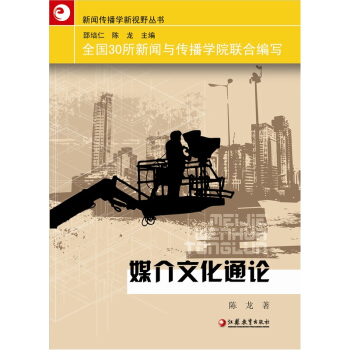
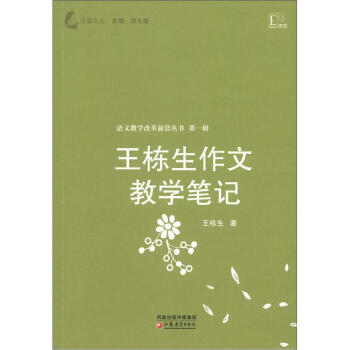
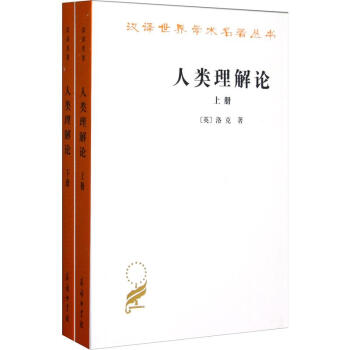


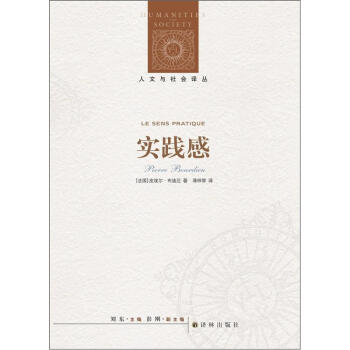
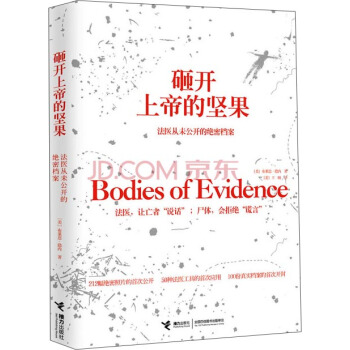
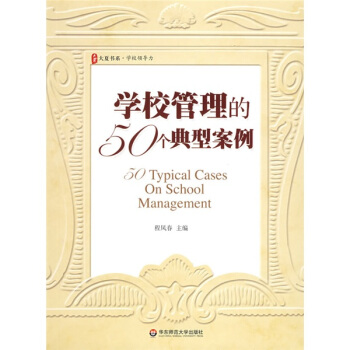



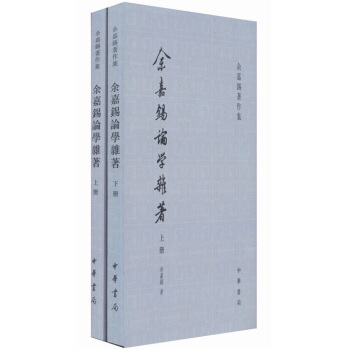
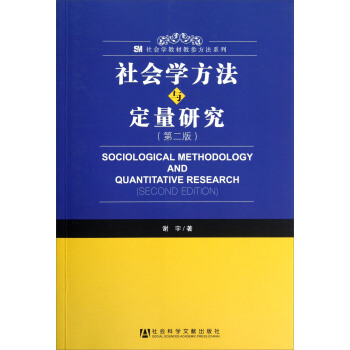
![如何撰寫和發錶SCI期刊論文(第二版) [How to Write and Publish of Scientific Paper in A SCI Journal(Second Edition)] pdf epub mobi 電子書 下載](https://pic.windowsfront.com/11870262/573c284bN185c7a5e.jpg)
![深暗(譯文紀實) [Deep Down Dark] pdf epub mobi 電子書 下載](https://pic.windowsfront.com/12111100/58ad4690N39bdc339.jpg)
